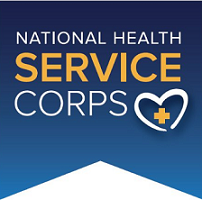Here at Bear River Mental Health, we believe that healthy individuals are necessary for a healthy community, and that includes mental well-being. That’s why we strive to educate on the importance of mental health, but many people still have questions about what mental health actually is and why it’s important. Are you interested in learning more about the basics of mental health or would you like a way to explain to your loved ones why it is so important to you? Read and share the following information!
What Is Mental Health?
Mental health is more than severe disorders or the inability to cope. It involves how a person feels, how he or she behaves and how he or she experiences the world. It includes a person’s emotional health, psychological health and social health. Without good mental well-being, life can be difficult. Mental health can impact all facets of our lives, from our ability to handle stress and the choices we make, to our relationships with others and our ability to function in society.
Those who have a healthy state of mental well-being are often better able to cope with the everyday stresses of life. They usually enjoy working productively and contributing to their communities. For many people, good mental health comes naturally and does not require work or assistance. However, some people do not have that luxury. They may need to reach out for help and find a treatment plan that allows them to improve their mental health.
What Causes Mental Health?
Mental health is something that should be addressed in individuals of all ages. Children and teens may struggle with mental well-being, as well as adults and seniors. It can change over time, depending on current seasons of life. What causes mental health conditions is not fully understood, but the following factors may play a role:
- Family history of mental health issues
- Biology, including genetic predisposition or brain chemistry
- Life experiences, such as abuse or traumatic events
Problems concerning mental health are not uncommon. While some people deal with their mental well-being their whole lives, many more have short periods of time when they struggle. Some people may be able to use coping strategies or techniques to ease their symptoms, but many require professional help. It is important to reach out to someone if you are struggling.
Warning Signs of Mental Health Problems
It is not always possible to know who is dealing with mental health problems. However, knowing the early warning signs may provide you with assistance and give support. Some of the most common warning signs include the following:
- Sleeping too much or too little
- Eating too much or too little
- Having little or no energy
- Distancing from relationships or activities
- Using drugs, smoking or drinking more than usual
- Unexplained aches and pains
- Mood swings
- Inability to complete regular daily tasks
- Suicidal thoughts or ideation
If you or someone you love is experiencing one or more of the above signs, you should reach out for help. If you are dealing with a crisis, please call the 24-Hour Crisis and Suicide Prevention Hotline at 988. Trying to deal with a mental health concern alone can sometimes make the problems worse.
While there is still a stigma surrounding mental health, it is important to talk about it and not try to hide issues out of fear or embarrassment. Mental health is an essential part of a person’s overall well-being, so getting help and having someone you can talk to can put you on the path toward living life more fully.
Why Is Mental Health Important?
As mentioned above, mental health impacts pretty much every aspect of an individual’s life. That includes physical health, emotional health and social health. Leaving a mental health condition untreated can lead to a range of problems that go beyond the individual. Family members, friends and close relationships can suffer, as well as society as a whole, when mental health is not taken seriously.
Did you know that the Centers for Disease Control and Prevention estimates that about one in five adults experiences one or more mental health conditions annually? It is likely a bigger issue than most people realize, and as such it can be difficult for society to address. Awareness is key, because the focus on better mental health can impact practically every household.
Better Physical Health

Untreated mental health has been proven to be linked to chronic diseases, including asthma, diabetes, health disease, cancer and arthritis. In addition, mental health conditions can lead to sleep problems which can exacerbate other physical conditions.
Those living with mental health issues may be less likely to have access to health care. In some cases, they may be unable to schedule appointments or show up for visits. They may also not have the ability to work, which could lead to loss of health insurance. Without proper care, chronic conditions may worsen.
Better Relationships

Improving one’s mental health can improve those same relationships. It helps to build and strengthen connections, foster understanding and empathy and create a support system if mental health issues return.
Better Community

How To Maintain Positive Mental Health
Positive mental health is important in providing individuals with the ability to reach their full potential, learn to live and deal with the stresses of life and create lasting relationships. Getting help puts people on the path toward recovery and maintenance. If you are at that point, some of the best ways to maintain positive mental health include the following:
- Regular exercise
- Professional help through therapy and/or medication
- Positive mindset practices
- Coping skills
- Helping others
- Making connections
It often takes a lot of work to ensure that your mental health is in a good place, but it is something that can change your life for the better. When you’re in the midst of a mental health crisis, it may feel that getting help is too hard or not worth your trouble, but it’s always possible and worth it!
Contact Bear River Mental Health Today
If you want to make a move toward positive mental well-being, Bear River Mental Health can help. We offer groups, individual therapy and classes, as well as many other services, to give you the tools you need to succeed. Our staff includes over 100 trained specialists, including therapists, psychiatrists, nurses, case managers and more.
We provide accessible, compassionate mental health services for residents throughout Northern Utah. Bear River Mental Health facilities are located in Box Elder, Cache and Rich counties. Contact us today for more information about the services we offer. We’re happy to answer any questions and direct you toward a provider who can help you work toward better mental health.


